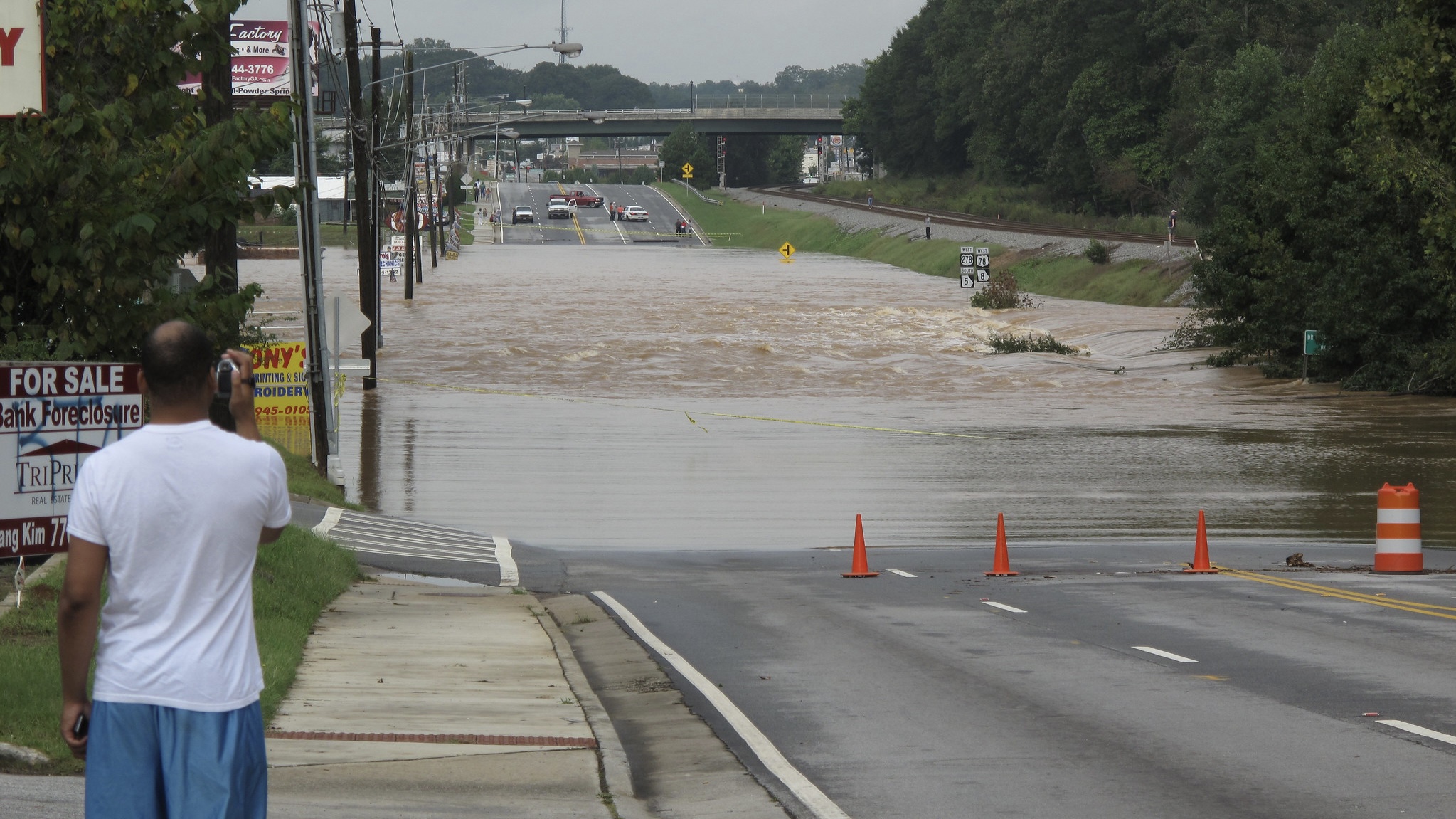As climate change brings more extreme rain, the risk of flooding is growing in Houston, Nashville, and other cities across the South.
Padgett: “Citizens obviously are very aware of what’s happening, because they are directly affected. When it floods, people’s homes are damaged, their property’s damaged.”
David Padgett of Tennessee State University works with the Deep South Center for Environmental Justice to help communities in the region address flooding.
He says when mapping flood-prone areas, government agencies are often slow to catch up to the changing reality on the ground.
Flood maps are often based on data from the past when heavy downpours were less common. And they’re not updated often enough to reflect how new buildings and parking lots affect where water flows and pools.
Padgett: “Every time we build something, we change the level of risk.”
So Padgett helps train community members to document the flooding they see.
Padgett: “You can actually go onto a map, and anybody can easily mark where flooding is occurring as it’s happening … and so that’s real-time flood assessment.”
He says residents can take that data to city officials and policymakers to provide evidence of what’s happening and advocate for solutions.
Reporting credit: Sarah Kennedy / ChavoBart Digital Media
We help millions of people understand climate change and what to do about it. Help us reach even more people like you.
Source link


